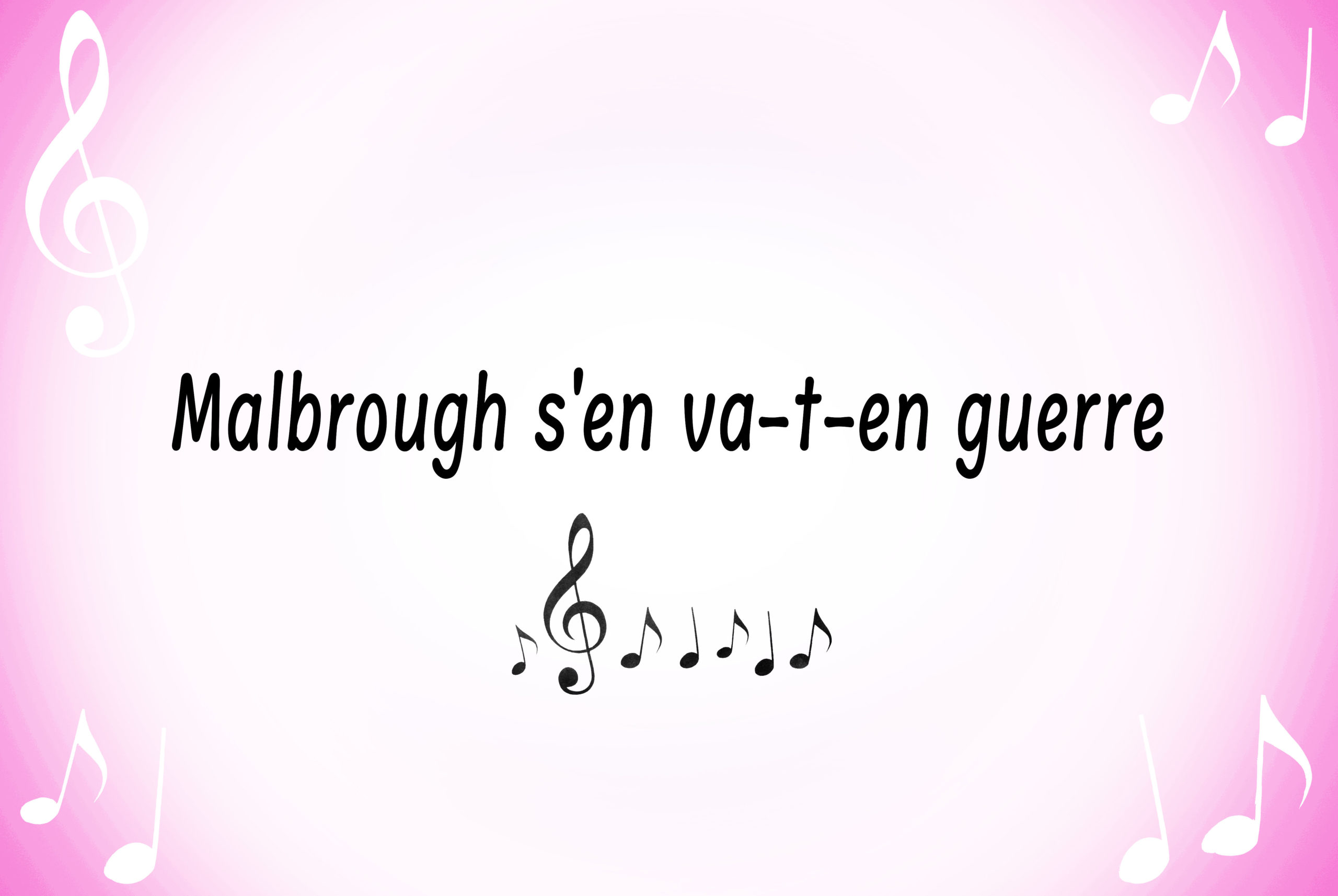Malbrough s'en va-t-en guerre (also known as Mort et convoi de l'invincible Malbrough) is a traditional French song with lyrics dating from the 18th century.
The story of the song
The protagonist of the song is the Englishman John Churchill, first Duke of Marlborough (1650-1722).

John Churchill, first Duke of Marlbrough. Portrait of Adriaen van der Werff (1704)
The song refers to the Battle of Malplaquet (11 September 1709), one of the bloodiest battles of the 18th century. The battle took place on the territory of the present-day commune of Malplaquet in northern France.
The song was sung by the French to mock the English enemy (Churchill).
However, contrary to what the lyrics of the song suggest, the Duke was only wounded at the Battle of Malplaquet.
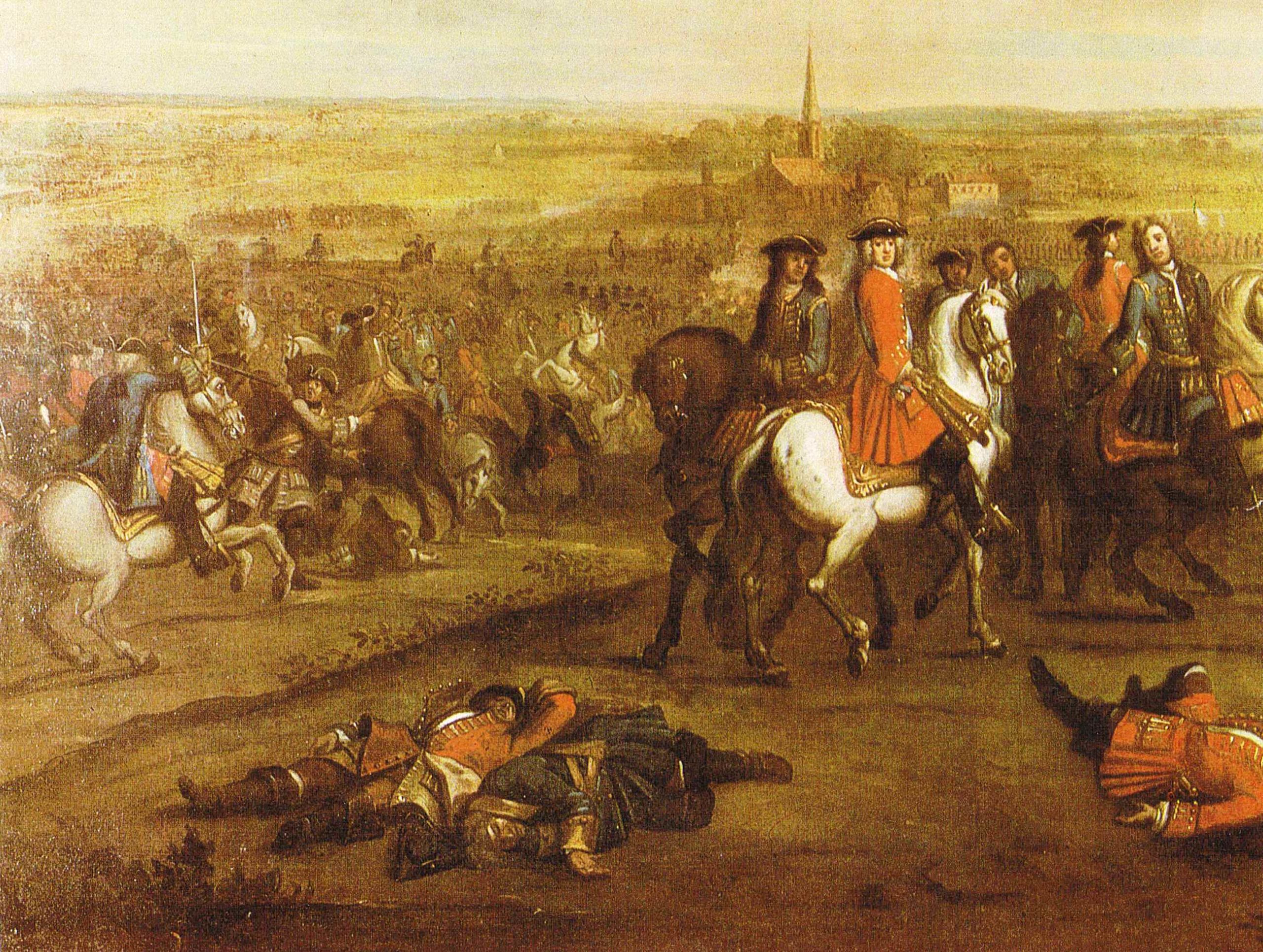
Marlborough at the Battle of Ramillies, 1706
Beaumarchais' revenge
The song spread to France from 1781, particularly after Beaumarchais included it as a page song in his play Le Mariage de Figaro. This play, after having been performed at Versailles for the future emperor Paul I of Russia, had been banned by order of Louis XVI. To alert the public against this censorship, Beaumarchais introduced this song, which was soon on everyone's lips.
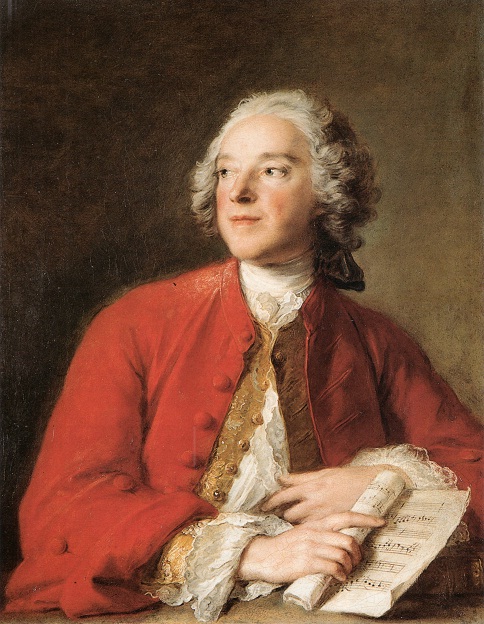
Pierre-Augustin Caron de Beaumarchais (1732–1799) in 1755
Marie-Antoinette and the song
Geneviève Poitrine, the nurse of the first dauphin, had learned it in her village. One day while she was singing it, Queen Marie-Antoinette wanted to learn it and played it on the harpsichord. The courtiers imitated her and the song became popular.
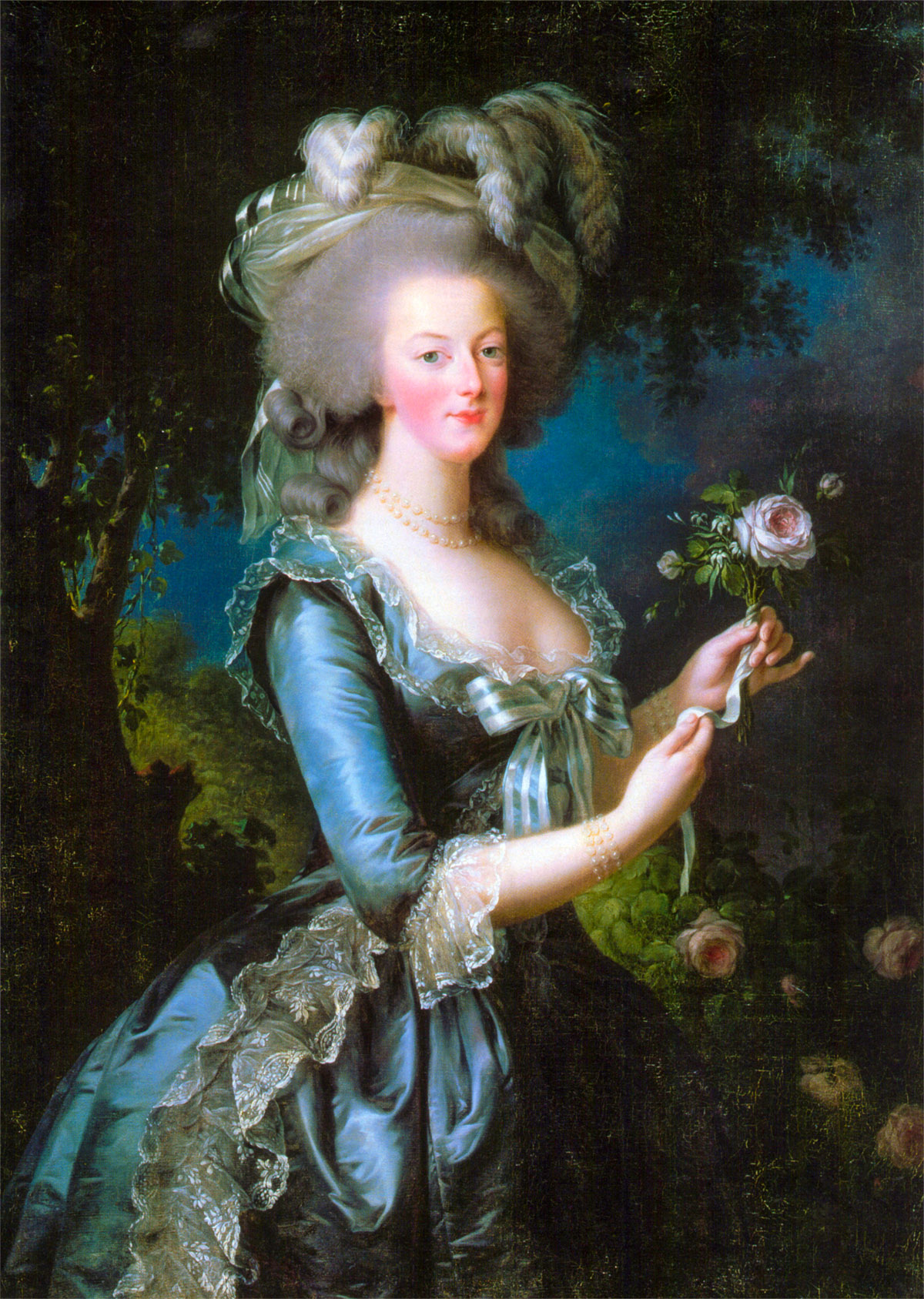
Marie Antoinette in 1783
The popularity of the song was immense, and many objects decorated with illustrations based on the theme of Malbrough's song were produced. There are various printed fans with the episodes of the song, its verses and some staves of the music. Not forgetting ribbons, headdresses, waistcoats and above all hats 'à la Marlborough'.
In addition, a tower in the Queen's Hamlet at Versailles was also named the "Marlborough Tower".
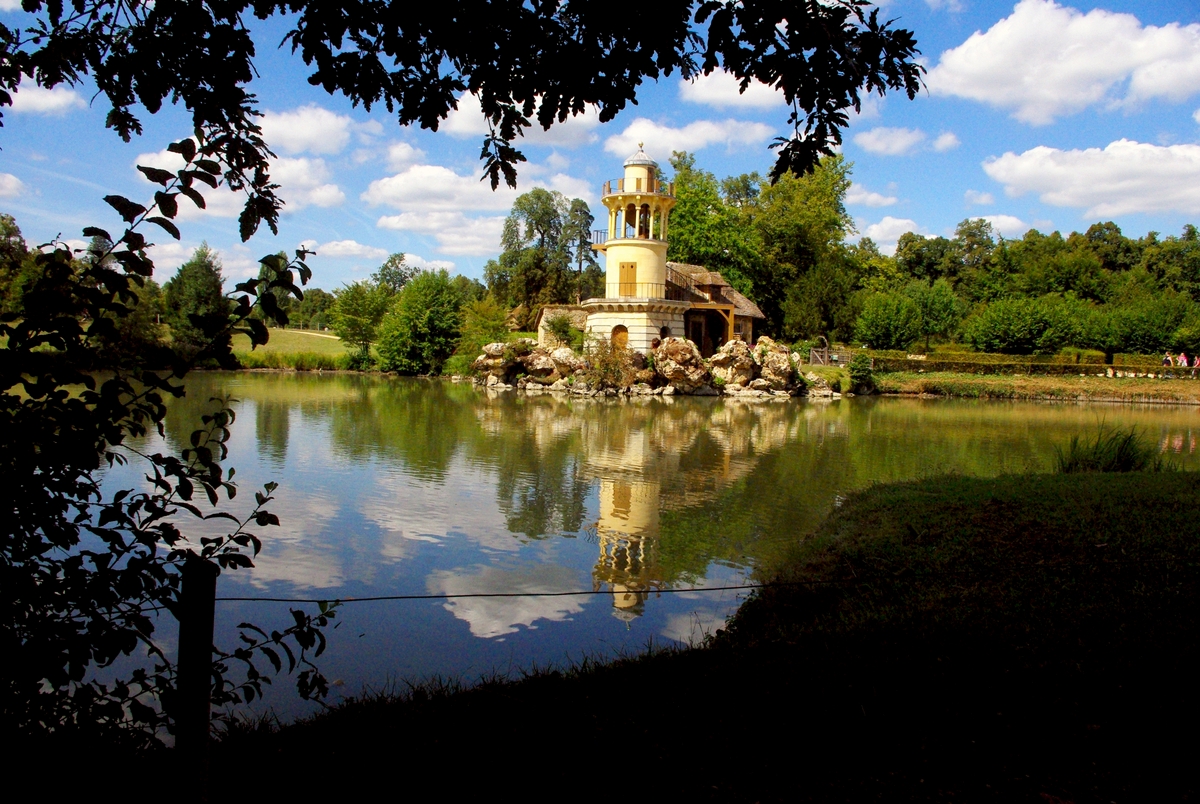
Marlborough tower at the Hameau de Marie-Antoinette, Versailles © French Moments
Marlborough in French
The French adopted other names to match Marlborough to their language : Malbrouk, Malbrouck, Malbrough, and sometimes Marlbrouck!
Marlborough in Lorraine
The English duke left his name not only to the song, but to the Meinsberg castle in Lorraine, also known as the château de Malbrouck.
The castle was built, with the agreement of the Duke of Lorraine, on a rocky spur overlooking the region and the village of Manderen by the will of Arnold VI Lord of Sierck in 1419. It was completed in 1434, the year in which the castle was declared able to withstand a siege, and placed at the service of the electorate of Trier.
![Malbrouck Castle © Cornischong – licence [CC BY-SA 3.0] from Wikimedia Commons Malbrouck Castle in Lorraine © Cornischong – licence [CC BY-SA 3.0] from Wikimedia Commons](http://frenchmoments.eu/wp-content/uploads/2023/01/Malbrouck-Castle-©-Cornischong-–-licence-CC-BY-SA-3.0-from-Wikimedia-Commons.jpg)
Malbrouck Castle in Lorraine © Cornischong – licence [CC BY-SA 3.0] from Wikimedia Commons
From Mensberg to Malbrouck
Originally called Mensberg Castle (in German: Schloss Meinsberg), its nickname came from Duke John Churchill of Marlborough, immortalised in the popular song Marlbrough s'en va-t-en guerre.
The Duke briefly set up his quarters here on 3 June 1705 during the War of the Spanish Succession before retreating to Trier two weeks later.
Adaptations of the song
The British adapted the tune as For He's a Jolly Good Fellow.
In 1813 Beethoven orchestrated Malbrough's Going to War for inclusion in Wellington's Victory. The song symbolises the French forces while Rule Britannia represents England.
La Romance sung by Cherubin in Act II, Scene 4 of Beaumarchais' play The Marriage of Figaro is to the tune of Malbrough s'en va-t-en guerre.
Victor Hugo specifies that his poem "Le Sacre" in Les Châtiments should be read to the tune of Malbrough s'en va-t-en guerre.
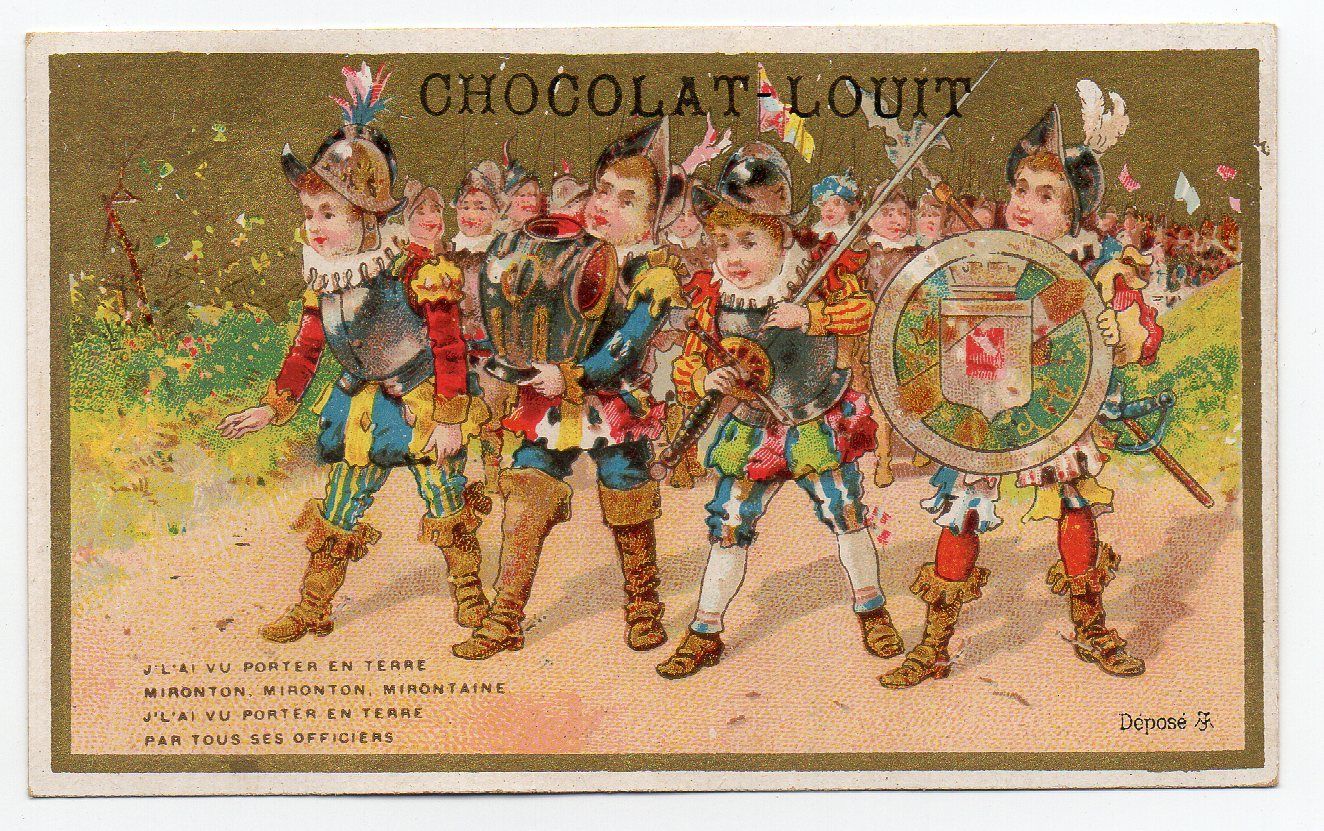
Malbrough s'en va-t-en guerre
Lyrics, music, free download... let's learn more about the popular song:

The lyrics in French
The original song of Malbrough s'en va-t-en guerre has 21 verses. The first is the best known, followed by the next two. However, few French people know the other 18.
Couplet 1
Malbrough s'en va-t-en guerre
Mironton, mironton, mirontaine
Malbrough s'en va-t-en guerre
Ne sait quand reviendra.
Ne sait quand reviendra (×2)
Couplet 2
Il reviendra (z') à Pâques
Mironton, mironton, mirontaine
Il reviendra (z') à Pâques
Ou à la Trinité.
Ou à la Trinité (×2)
Couplet 3
La Trinité se passe
Mironton, mironton, mirontaine
La Trinité se passe
Malbrough ne revient pas.
Malbrough ne revient pas (×2)
Translation of the lyrics into English
Here is an approximative translation into English:
Verse 1
Marlbrough goes to war
Mironton, mironton, mirontaine
Marlbrough goes to war
Don't know when he'll be back.
Don't know when he'll be back (×2)
Verse 2
He'll come back at Easter
Mironton, mironton, mirontaine
He will come back at Easter
Or on Trinity Sunday.
Or on Trinity Sunday (×2)
Verse 3
Trinity Sunday is over
Mironton, mironton, mirontaine
Trinity Sunday is over
Marlbrough does not return.
Marlbrough does not return (×2)
The other verses of the song
Here are the other 18 verses:
Couplet 4
Madame à sa tour monte
Mironton, mironton, mirontaine
Madame à sa tour monte
Si haut qu'elle peut monter.
Si haut qu'elle peut monter (×2)
Couplet 5
Elle aperçoit son page
Mironton, mironton, mirontaine
Elle aperçoit son page
Tout de noir habillé.
Tout de noir habillé (×2)
Couplet 6
Beau page, Ha! Mon beau page !
Mironton, mironton, mirontaine
Beau page, ah mon beau page !
Quelles nouvelles apportez ?
Quelles nouvelles apportez ? (×2)
Couplet 7
Aux nouvelles que j'apporte
Mironton, mironton, mirontaine
Aux nouvelles que j'apporte
Vos beaux yeux vont pleurer.
Vos beaux yeux vont pleurer (×2)
Couplet 8
Quittez vos habits rose
Mironton, mironton, mirontaine
Quittez vos habits rose,
Et vos satins brochés.
Et vos satins brochés. (×2)
Couplet 9
Monsieur Malbrough est mort
Mironton, mironton, mirontaine
Monsieur Malbrough est mort
Est mort et enterré.
Est mort et enterré (×2)
Couplet 10
Je l'ai vu porté en terre
Mironton, mironton, mirontaine
Je l'ai vu porté en terre
Par quatre z'officiers.
Par quatre z'officiers (×2)
Couplet 11
L'un portait sa cuirasse
Mironton, mironton, mirontaine
L'un portait sa cuirasse
L'autre son bouclier.
L'autre son bouclier (×2)
Couplet 12
L'un portait son grand sabre
Mironton, mironton, mirontaine
L'un portait son grand sabre
L'autre ne portait rien.
L'autre ne portait rien (×2)
Couplet 13
Alors autour de sa tombe
Mironton, mironton, mirontaine
Alors autour de sa tombe
Romarin l'on planta.
Romarin l'on planta (×2)
Couplet 14
On vit voler son âme
Mironton, mironton, mirontaine
On vit voler son âme
Au travers les lauriers.
Au travers les lauriers (×2)
Couplet 15
Chacun mit ventre à terre
Mironton, mironton, mirontaine
Chacun mit ventre à terre
Et puis se releva.
Et puis se releva (×2)
Couplet 16
Pour chanter les victoires
Mironton, mironton, mirontaine
Pour chanter les victoires
Que Malbrough remporta.
Que Malbrough remporta (×2)
Couplet 17
La cérémonie faite
Mironton, mironton, mirontaine
La cérémonie faite
Chacun s'en fut coucher.
Chacun s'en fut coucher (×2)
Couplet 18
Les uns avec leurs femmes
Mironton, mironton, mirontaine
Les uns avec leurs femmes
Et les autres tout seuls.
Et les autres tout seuls (×2)
Couplet 19
Ce n'est pas qu'il en manque
Mironton, mironton, mirontaine
Ce n'est pas qu'il en manque
Car j'en connais beaucoup.
Car j'en connais beaucoup (×2)
Couplet 20
Des blondes et des brunes
Mironton, mironton, mirontaine
Des blondes et des brunes
Et des châtaignes aussi.
Et des châtaignes aussi (×2)
Couplet 21
Je n'en dis pas davantage
Mironton, mironton, mirontaine
Je n'en dis pas davantage
Car en voilà z'assez.
Car en voilà z'assez (×2)

